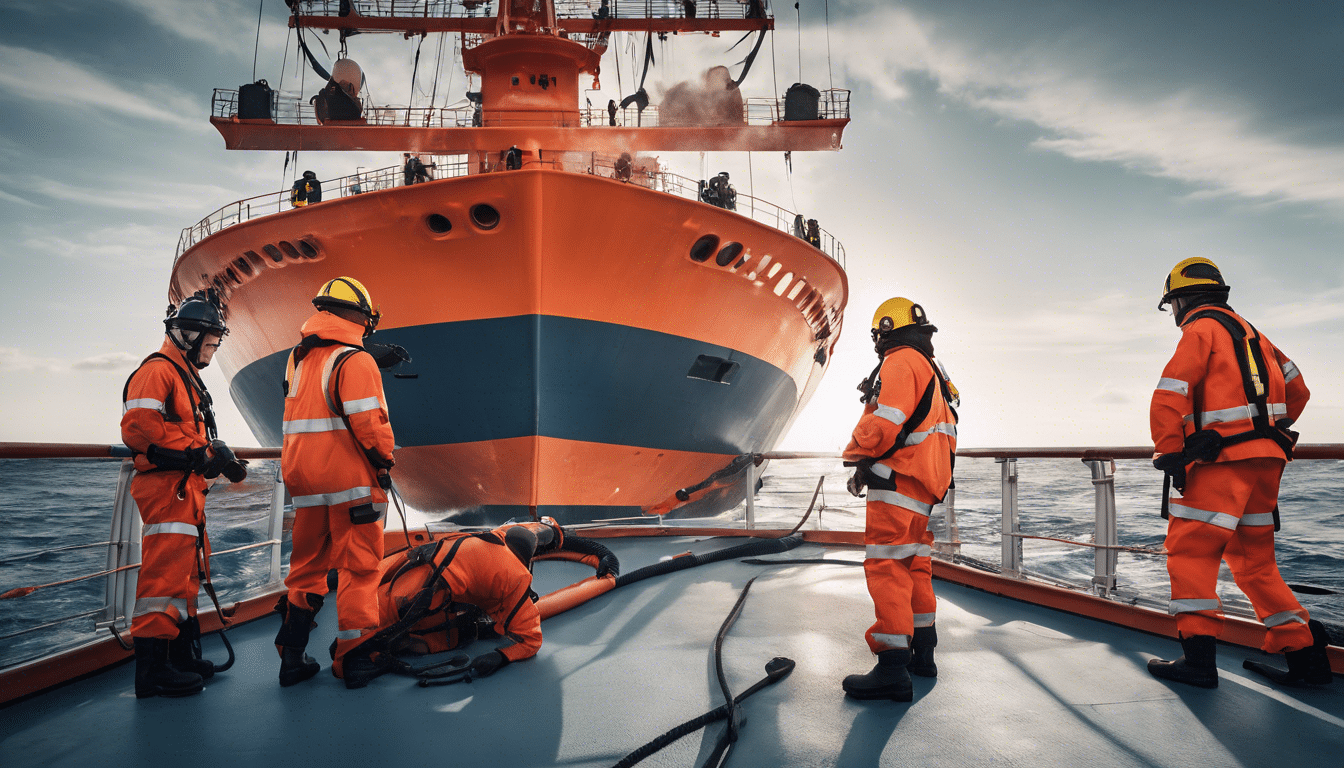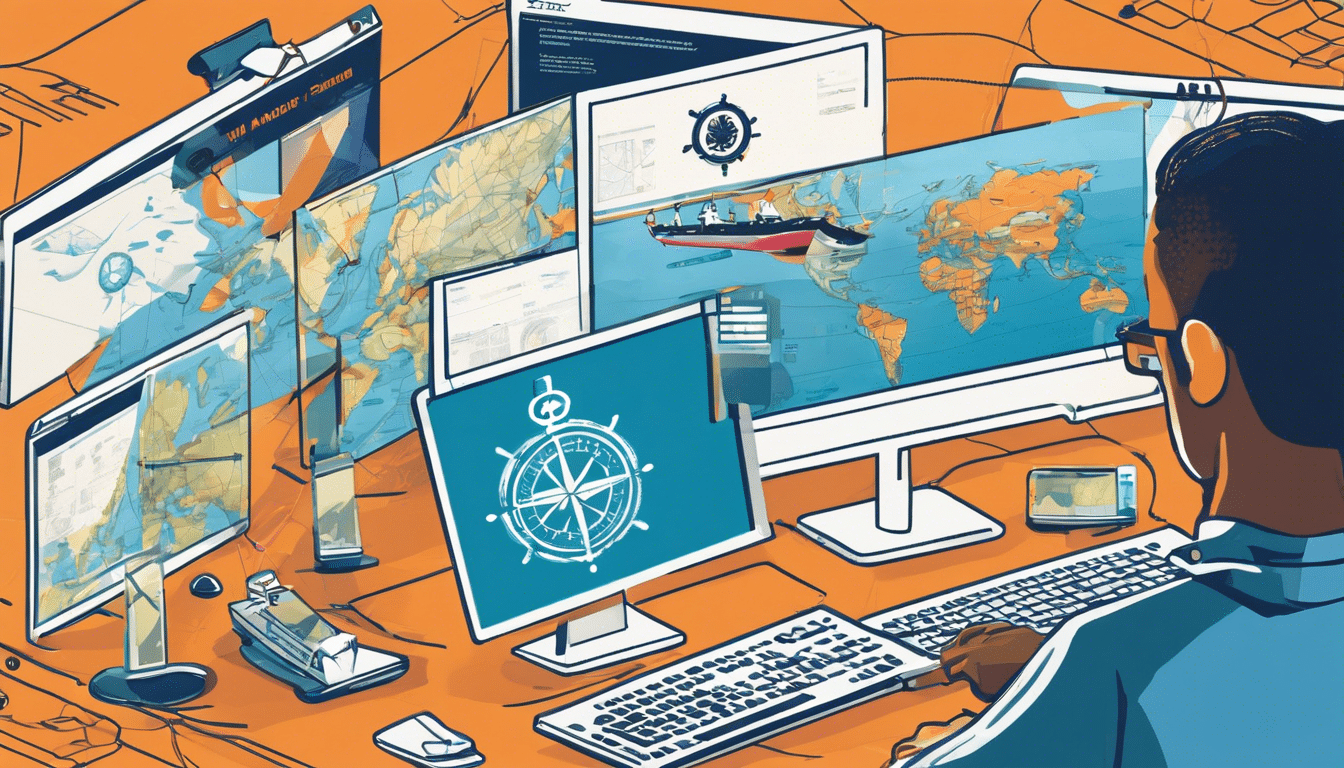In an industry as dynamic and multifaceted as maritime, the significance of continuous maritime training cannot be overstated. Safety is not just a regulatory requirement but a cornerstone of effective maritime operations. The waters are filled with unpredictability, and the best way for maritime professionals to navigate these challenges is through ongoing education and training. This article delves into why continuous maritime training is vital for safety and compliance, examining its role in adhering to regulations, enhancing maritime personnel’s skills, and addressing the challenges in training implementation.
Learn More About Our Courses Here!
Key Takeaways
- Continuous maritime training is crucial for maintaining safety and compliance standards in the industry.
- Regulatory bodies mandate ongoing training to ensure that maritime professionals meet safety requirements.
- Regular training enhances the skills and knowledge of maritime personnel, leading to safer operations.
- Implementing continuous training programs can be challenging but is essential for adapting to evolving regulations.
- Solutions such as technology integration and flexible training schedules can overcome barriers to continuous maritime training.
The Importance of Continuous Maritime Training
The maritime industry is known for its vast complexities and inherent risks, making continuous education essential. Why continuous maritime training is vital for safety and compliance cannot be overstated; it ensures that crew members and operators are abreast of the latest safety protocols, regulatory requirements, and technological advancements. Continuous maritime training fosters a culture of safety onboard ships, significantly reducing the likelihood of accidents and enhancing overall compliance with international regulations such as the STCW (Standards of Training, Certification, and Watchkeeping). Moreover, as new challenges such as environmental concerns and evolving maritime laws arise, ongoing training allows personnel to adapt swiftly, ensuring not just the safety of the crew and vessel but also the protection of marine environments and resources. By prioritizing continual skill enhancement, maritime organizations can uphold their commitment to safety, efficiency, and regulatory compliance, ultimately leading to a more reliable and sustainable maritime industry.
Regulatory Compliance and Safety Standards
In the maritime industry, why continuous maritime training is vital for safety and compliance cannot be overstated. Regulatory bodies impose stringent safety standards to ensure that all vessels operate within safe parameters, protecting both crew and the environment. Regular training sessions that focus on the latest regulations enable crews to stay updated on the ever-evolving legal landscape. This ongoing education helps prevent accidents and incidents that could arise from outdated practices or lack of knowledge. Furthermore, such training fosters a safety-first culture onboard, ensuring that every crew member understands the protocols necessary for compliance. By prioritizing continuous maritime training, shipping companies not only enhance operational efficiency but also minimize risk, ultimately leading to safer voyages and a more robust reputation within the industry.
‘An investment in knowledge always pays the best interest.’ – Benjamin Franklin
Learn More About Our Courses Here!
Enhancing Skills and Knowledge of Maritime Professionals
In the ever-evolving maritime industry, continuous training is essential for ensuring safety and compliance among maritime professionals. Why continuous maritime training is vital for safety and compliance can be attributed to several factors, including the need to stay updated on technology, regulations, and best practices. As vessels become more advanced with integrated systems, knowledge about navigation and safety protocols must be current. Moreover, regulatory bodies frequently adjust compliance standards to enhance maritime safety, making it crucial for professionals to engage in regular training sessions. This ongoing education not only minimizes the risk of accidents by fostering adherence to safety measures, but it also cultivates a culture of accountability and professionalism within the maritime workforce. Consequently, investing in continuous maritime training not only protects lives and property but also fortifies the integrity and reputation of the industry.
Challenges and Solutions in Implementing Continuous Training Programs
In the dynamic world of maritime operations, why continuous maritime training is vital for safety and compliance can’t be overstated. The maritime industry faces numerous challenges that necessitate ongoing education and training for crew members and management alike. Factors such as rapid technological advancements, evolving regulations, and the environmental impact of maritime operations demand that seafarers remain well-versed in the latest safety protocols and compliance measures. However, implementing effective continuous training programs can be met with obstacles, including budget constraints, logistical issues, and the need for tailored content to meet diverse crew skill levels. Solutions include leveraging online training platforms, which allow for flexible learning schedules, and incorporating simulation-based training to provide realistic, hands-on experience. By prioritizing continuous maritime training, companies not only adhere to regulations but also promote a culture of safety, ultimately safeguarding both lives and the environment.
À Propos de Nous
Virtual Maritime Academy is a leading provider of online maritime education and training, offering a wide range of courses designed to meet the needs of the global maritime industry. With a commitment to quality and innovation, Virtual Maritime Academy is dedicated to preparing seafarers and maritime professionals for success in their careers. Now a DNV Certified Maritime Training Provider, the academy upholds the highest standards of excellence in training and education.









